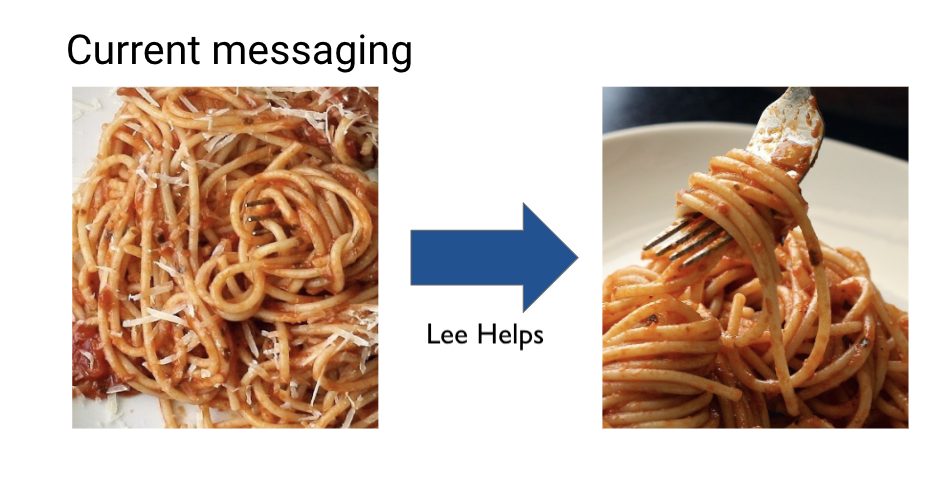Do you have spaghetti brain?
“Spaghetti brain” is a term that came to me from a client (hi, Chris). When we were first introduced, he told me he needed help “twirling the spaghetti” of his company’s marketing and communication challenges.
He attached this picture to his email:

Amazing, right? You see why I said yes to the job.
We all know what it feels like to have a brain full of messy spaghetti. In an ideal world, we’d wake up without an alarm, go through a carefully vetted morning routine involving yoga and meditation and the perfect cup of coffee, then calmly work on our one most important project with a clear and uncluttered brain.
Ha.
Instead, we’re pinged all day, accidentally overbooked, that call got canceled because someone has COVID…again, need to pay that invoice, need to move that deadline, need to figure out how to explain what industry 4.0 means, need to make another coffee, need to respond to that email, need to edit that again, need to talk to him, need to order groceries, need to finish that presentation, spaghetti spaghetti spaghetti.
This happens in each of our heads, and it happens to teams and organizations, too. Change is coming at us fast. We’re swimming in competing, urgent priorities. Everyone is lobbying for their big idea or their solution to get all the focus and budget. How do we keep our teams from swimming in spaghetti?
How to Organize a Messy Mind
It doesn’t feel surprising that leaders are looking for people they can count on as professional spaghetti twirlers. People who can literally take something off their plates.
It’s why we hire business coaches and outside consultants. It’s why we hire ghostwriters. It’s why we seek out communities of people who can give us perspective.
We might all have spaghetti inside our own brains, but we can probably help someone else twirl theirs. Because other people’s spaghetti feels less messy and overwhelming and personal than our own.
If you’re still with me in this pasta metaphor, here’s my point.
There’s no shame in having spaghetti brain! And the antidote is other people — their perspectives, wisdom, and gentle guidance.






